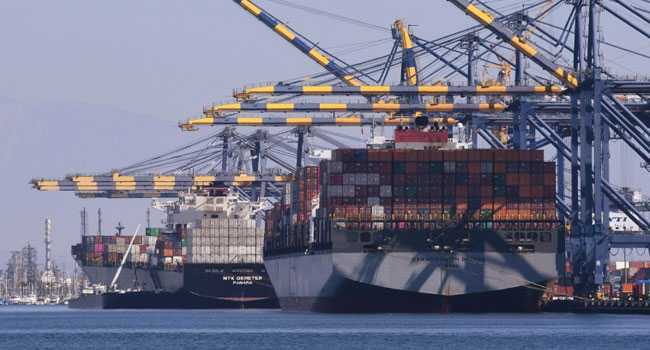Headlines
Capital Importation Into Nigeria Reached $5,854.38m In Q1 2020

The National Bureau of Statistics (NBS) has disclosed that in the first quarter of 2020, the total value of capital importation into Nigeria reached $5,854.38m.
Brandnewsday authoritatively reports that the total value of capital importation into Nigeria in the year 2020 Q1 has shown that there is an increase of 53.97% compared to the fourth quarter (Q4) of 2019, while it depicted a decline of -31.19% compared to Q1 of 2019.
Type & Sector: Capital Importation Into Nigeria
Meanwhile, the most significant capital importation by type was obtained through portfolio investment, which valued for 73.61% ($4,309.47m) of total capital importation, following by other Investment, which estimated for 22.73% ($1,330.65m) of the total capital, while the Foreign Direct Investment (FDI), took the 3.66% ($214.25m) of total capital imported in Q1 2020.
Revealing the Capital importation into Nigeria by sector, the Capital importation in the banking sector dominated Q1 2020 accounting $2,990.21m of the total capital importation in Q1 2020.
In a similar vein, Standard Chartered Bank Nigeria Limited emerged at the top of capital investment in Nigeria in Q1 2020 with $1,656.60m. This accounted for 28.30% of the total capital inflow in Q1 2020.
Subsequently, by the source of Capital Investment in Nigeria, the United Kingdom emerged as the top source capital in Q1 2020 with $2,908.62m. This estimate for 49.68% of the total capital inflow in Q1 2020.
READ: Nigeria’s GDP Grew By 1.87% YoY In Q1 2020
Also, by Destination of Investment, Lagos state emerged as the top destination of capital investment in Nigeria in Q1 2019 with $5,135.49m. This accounted for 87.72% of the total capital inflow in Q1 2020.
In a similar report, Nigeria’s Gross Domestic Product (GDP) has grown by 1.87% (year-on-year) in the first quarter of 2020.
The growth in the GDP was recorded against the backdrop of the effects of the COVID-19 resulting in the global disorders that led to alarming public health precautions. Thus led to the plunge in crude oil prices, restricted international trade and border closure by countries.












